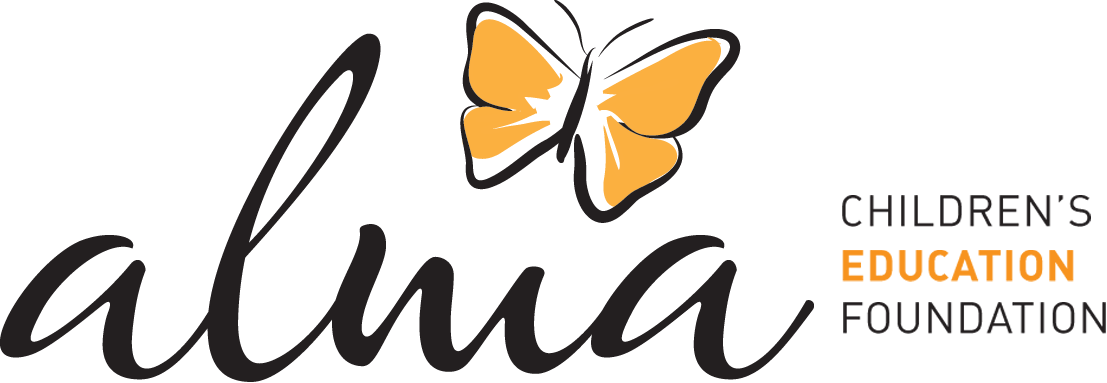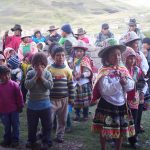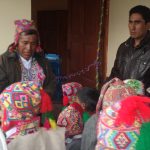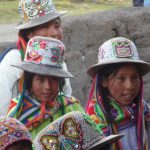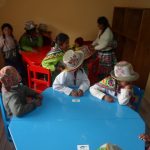Last week the Alma Foundation and the community of Tuksa officially inaugurated the Tuksa Biblioteca Project. The entire community turned out for the event, as well as the primary school’s two teachers, representatives from the District Municipality of Combapata, and elected leaders from neighboring communities.
- Community gathers to celebrate opening of Tuksa Biblioteca
- Eagerly waiting to peek inside…
- The Biblioteca’s first students!
- Inside the new space
On the surface, it was a celebration to mark the beginning of the project. However, when speaking to the children who will attend the library workshops, it became clear that the day was about much more.
Education is commonly viewed as a straight line: you start at point A and must get to at least point B. In reality, however, education looks more like a tree with exposed roots: many different starting places with many different destinations. The philosophy behind the reading comprehension workshops offered in the Tuksa Biblioteca project follows the latter view. We are taking advantage of the fact that the library is an after-school activity, separate from the regular state-mandated curriculum and allowing the children to follow their own interests. It is then our job to link those interests to reading comprehension, creative writing, and critical thinking. So how will we do it?
One example is a project that allows the children to create movies. As far as the children are concerned, they get to have fun with each other and play with cameras and a computer. From an academic view, however, the children will learn to write creative stories and develop characters; they will practice reading comprehension by analyzing the characters’ actions and emotions in order to act out the scenes; and they will become more familiar with technology by filming the movies and editing them on computers.
The library in Tuksa is a space, both physical and figurative, where children can pursue their own interests in order to develop skills in reading comprehension, creative writing, and critical thinking. It is a place where the children can branch out from the straight line and create new trails which will lead to new discoveries. It is more than just a reading comprehension project.
For the children of Tuksa, it is a new way to learn.
by Ian McGroarty, Program Director
